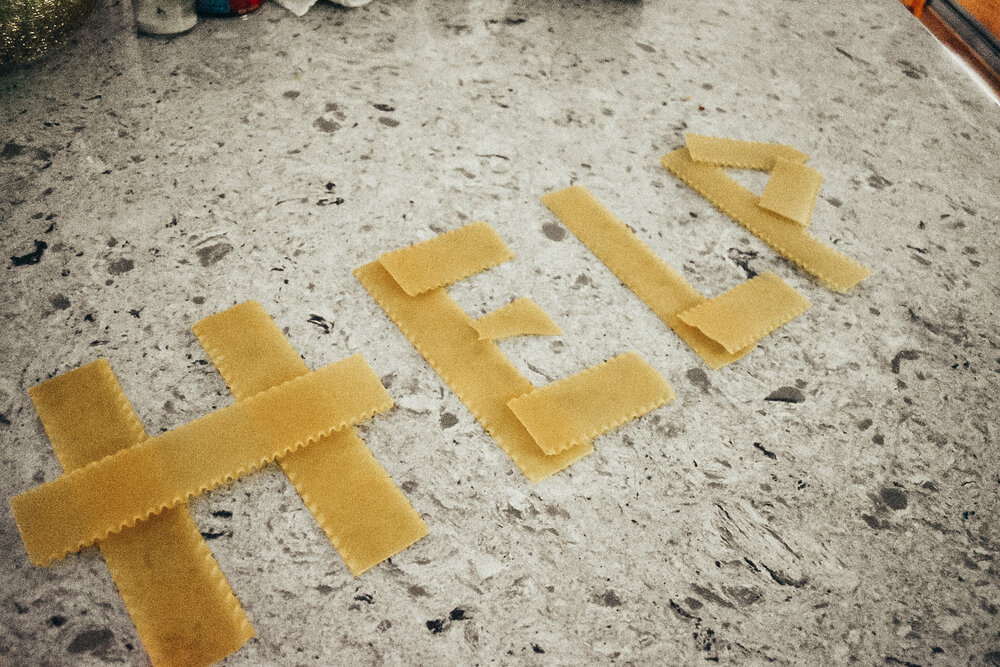This content has been archived. It may no longer be relevant
Asking for help can be hard. But when I started making and delivering lasagnas back at the beginning of the pandemic, I didn’t realize just how hard. I remember being shocked by messages from moms who saw my posts but said they were embarrassed to be reaching out. In my head I thought: embarrassed?! But I’m offering the help! And it’s not your fault there’s a new virus threatening our economy and livelihood, why be embarrassed that you need a hand? At the same time that I asked the question, however, I started to realize I already knew the answer. Because I, too, was exceptionally bad as asking for help – even at the times when I really needed it.
Two sides of the independence coin
We are a country that places a significant value on independence. Not just independence in the Fourth of July, freedom, fireworks, “I do what I want” sense, but independence in the sense that we all are taught the importance of working to succeed on our own. You can see it in how our educational system is structured, In the dominant theories of meritocracy, and now: in how individuals respond during a global pandemic. One of our regional directors had a hard time early on finding families in need in her state. She said she knew that it was because in her part of the country there was a strong “pull yourself up by your bootstraps” mentality. When the going gets tough, you just figure it out on your own. You don’t ask for help: you double down.
I’ve written about this in the context of motherhood on Good to Mama as well. There’s pressure on moms – whether societal or internally driven – to do it all ourselves and not ask for help. I’ve experienced this myself and I find it fascinating now that I’m aware of it. It’s as if we feel that asking for help means we’ve failed in some way – that we were supposed to be able to do it all ourselves and we weren’t able to. But there’s even more to the story, I believe.
Not only does society value independence, but it also frequently places the blame for lack of success squarely on the individual. And this, friends, is where the embarrassment comes in. If I need to ask for help, I’m embarrassed asking because to me, it feels like I failed at something. And I’m afraid you might think I’ve failed at something, and pass judgement on me. And it’s not an unfounded fear: I’ve heard comments throughout my life from well-intended friends, family, or others that recipients of social programs just need to try a little harder, just need to work a little more, just need to pull themselves up by their bootstraps. The blame is placed squarely on the individual, with little consideration given to the external factors that played a role. Even if you haven’t been the beneficiary of a social program, I’m guessing at some point in life you felt like you failed at something, needed to ask for help, and we’re worried about what other people might think. Maybe you needed a tutor for math class? Help paying off a debt? A marriage counselor? Something else? How did that feel?
Why we don’t expect a thank you
There’s a lot of complex psychology at work here. If asking for help in the first place is difficult and embarrassing, think about how hard it might be to say thank you. And by wanting or expecting a thank you, we’re putting the focus on us and our feelings, when it’s not about us at all. One of my favorite quotations is “trade your expectations for appreciate of what is”. Appreciate the help you’ve given, appreciate the impact you’ve had, appreciate that you’re in a position to be giving help. This is a huge mindset shift for so many of us, who were brought up with a rulebook for manners and an expectation for how society should behave.
The pandemic is an opportunity to truly shift this thinking. No one can argue that losing your job during COVID is the fault of the person who’s now out of work. No one can argue that the long lines of people at food banks are standing there because they’re not trying hard enough. No one can say that parents who are working from home, distance learning their kids, and simultaneously trying to keep up with the house and safety protocols and not completely lose their minds aren’t doing their absolute best. Here is our opportunity to empower everyone to raise their hands, unashamedly. Our opportunity to practice letting go of our habits of judgment, and replacing them with habits of kindness. Our opportunity to begin to value community as much as we value independence. Because by some of us asking for help and others responding joyfully and unreservedly, we can truly strengthen our communities. And that strength – I believe – will persist and have a far greater impact beyond the pandemic.


